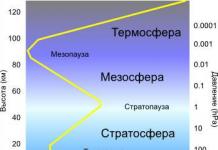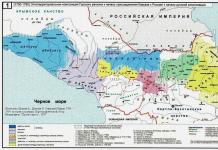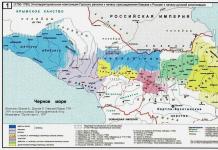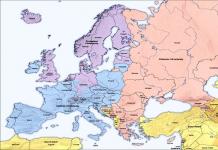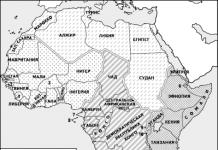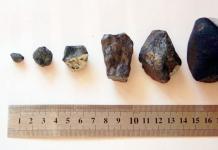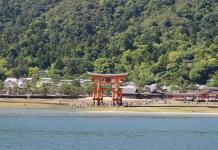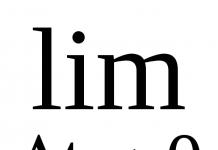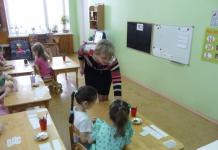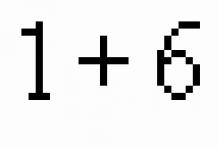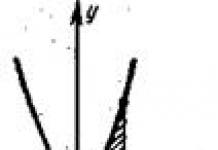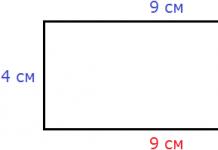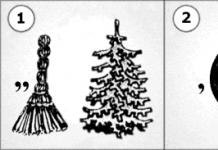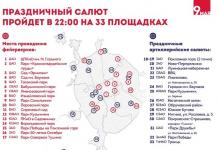All 419 higher educational institutions existing in the Republic of Korea on this moment, form a kind of "hierarchical pyramid", the position of the university in which should be taken into account when submitting documents. Of course, they are all controlled by the Ministry of Education and have their own plans and developments in teaching, but nevertheless, let's be honest: you should always choose the best. In the Republic of Korea, it is not so much the higher education itself that is valued, but the place where you received this education. When choosing a university in Korea, this feature should always be kept in mind. A diploma from a “good” university will help its owner when looking for a job, then moving up the career ladder, and sometimes even when getting married or marrying, because every parent selects the best match for their child, and in South Korea, the opinion of parents still plays into this issue a big role.
What higher education institutions can be called the best? Let's stop there.
Officially, there are five types of universities in the country: universities, colleges, pedagogical institutes, full-time and correspondence universities. There are also educational institutions with a pronounced military or religious orientation, they stand apart. Interestingly, the vast majority of Korean universities are private, and only 24 are state-owned.
There are three "star" universities (Seoul National University, Korea University, Yonsei University), and they are all located in Seoul, the capital of South Korea. They are called SKY for short, and getting into one of them is like being in seventh heaven.
The top of the "pyramid" is, of course, Seoul State University(Seoul NationalUniversity), which is also sometimes abbreviated to SNU, after the first letters of the name. Founded in 1946, Seoul University became the first institution of higher education in the entire Korean Peninsula! Since then, he has been at the forefront. For example, according to statistics proposed by QS World University Rankings, Seoul University was ranked 7th among all educational institutions in Asia in 2011 and 42nd among 700 world universities. Its campus is almost whole city, along which it is easier to get from one end to the other by a special bus, and not on foot. All cases are new; in particular, additional dormitories were completed in 2011 - and now 3,500 students can live on campus, one of which can be you. It is also worth adding that at one time many famous Korean scientists, artists, writers and poets, athletes, actors and actresses, prominent businessmen (for example, the heads of Samsung or LG companies), politicians (Seoul University graduated, for example, from UN Secretary-General Ban Ki-moon or the seventh President of the Republic of Korea, Kim Yong-sam).
Telephone: 82-2-880-4447
Email: [email protected]
Another "star" university SKY - Korea University(Korea University). This is a prestigious private university that grew out of a college founded in 1905. According to the already mentioned QS World UniversityRankings statistics, in 2010, Korea University ranked 191st. The most popular faculty of the university is law, because Korea University is considered the very institution of higher education that provides knowledge in this specialty to the fullest extent. And, if informally Seoul State University is considered technical, then Korea University is more predisposed to humanitarian and social sciences: jurisprudence, journalism, linguistics, philosophy, philology and others. Of course, there are also technical faculties at the university.
Telephone:+82-2-3290-1152
The university, which is considered prestigious in South Korea, begins, as you might have guessed, with the letter Y, and in Russian its name sounds like Yonsei University(Yonsei University). This is also a private university, and, moreover, it was founded thanks to missionary activities, therefore it is tacitly considered Christian. Yonsei University was founded in 1957 from two colleges. At the moment, according to the statistics of QS World University Rankings, this university ranks 129th in the world. Yonsei is popular among those who want to improve their knowledge in the humanities, but most importantly in medicine. To study at this university, it is not necessary to be a Christian, but it is still advisable to attend the university church once a week. Famous Korean actors and actresses, directors, screenwriters, singers and singers, athletes, poets and writers, businessmen, politicians graduated from Yonsei University at different times (for example, Yonsei graduated from two Korean prime ministers - Kim Seoksu and Han Seungsu) and, of course, scientists currently working around the world.
South Korea is an industrial, steadily developing state with a strong economy. System higher education country ranks in modern world one of the leading positions in the ranking.
The fundamental plus of Korean higher education is high quality knowledge. Specialists graduated from local universities are competitive in all countries. The flow of foreigners wishing to enter Korean universities is increasing every year.
Education in Korea is conducted in two languages: Korean and English. Admission to the higher level is possible after the completion of a 12-year course of secondary education.
The education offered by Korean institutions has a number of undeniable advantages:
- The professionalism of teachers who have passed a rigorous selection for work;
- High-tech equipment educational process;
- Developed program of scholarships and grants to support foreign students;
- Opportunity to visit additional courses, trainings, hobby classes.
Organization of the educational process
Students of Korean universities independently choose the disciplines they study, build a study schedule.
There are no lectures based on the teacher's monologue. Classes are held in the form of seminars having a discussion format. Students learn to reflect, to speak publicly, to stand on their own point of view.
The criterion for evaluation is the student's ability to apply the acquired knowledge in practice.
For the semester, you need to get a certain amount of points for a successful transition to the next stage. Points are awarded for homework and attendance. Exams are taken twice per semester: intermediate and final.

The academic year in Korea starts in March and runs until February:
- The first semester is from March to August;
- The second semester is from September to February.
From July to August and from December to February, students have a vacation.
School week - five days, Saturday and Sunday - days off.
On a note! Strict discipline is the key to successful learning. Non-compliance with the rules of conduct at the institute, frequent lateness and missed classes negatively affect the reputation, may be the reason for expulsion from the university and even deportation to their homeland.
Foreign students after six months of study in Korea are officially allowed to work. The number of working hours per week during studies - no more than 20. During the holidays, the time limit is removed. There are no problems with vacancies, the income received helps to compensate for the cost of studying.
Education programs
Universities in South Korea are divided into:
- professional colleges;
- Universities.

Terms of study:
- College education - 2-3 years;
- Undergraduate - 4 years;
- Master - 2 years;
- Doctorate - no more than 4 years;
- Doctors have been trained for 6 years.
Forms of ownership of Korean higher education institutions:
- National universities are run by the state;
- State Universities Subordinate local authorities authorities;
- Private universities are owned by private legal entities.
The Ministry of Education of South Korea puts forward serious requirements that all institutions must comply with, regardless of the form of ownership.
Popular specialties in Korea:
- International relationships;
- Economy;
- Jurisprudence;
- The medicine;
- Informatics and IT-technologies;
- Maths;
- Pedagogy.
Conditions for admission
The main condition for enrolling in a South Korean institute is a good command of English or Korean.
You can confirm the level of knowledge of the language in 3 ways:
- Having a TOEFL certificate not lower than level C;

- By providing an IELTC certificate from 5.5 points;

- Having passed at least level 3 of the TOPIK Korean language proficiency test.
Russians cannot enter the first year of a Korean higher educational institution after the 9th or 11th grade, just like Kazakhstanis, Uzbeks and other citizens of the CIS countries. After graduation, admission is possible only for one-year training courses at the Korean Institute. At home, you need to study at least 1 year at the institute in the specialty chosen for development in Korea.
Required documents
To enroll in a higher educational institution in South Korea, you should prepare a standard package of documents, which includes:
- Application for admission to the university;
- Autobiography;
- School certificate of complete secondary education;
- Certificate of study at the university;
- Statement of the courses attended with indication of academic hours;
- A copy of the certificate confirming knowledge of a foreign language;
- Motivation letter;
- Copy of the applicant's passport;
- Consent to the processing of personal data and verification of the information provided.
Provided copies of documents require certification by a notary.
On a note! Depending on the university and specialty, the list of required documents may be updated. The exact information should be clarified in the international department of the selected institution.
In most cases, Korean universities make admission decisions based on the documents provided. In some educational institutions, interviews or exams are additionally conducted.
student visa
After receiving a response on enrollment, you should take care of the issue of obtaining a Korean student visa.

The type of visa depends on the program of study:
- D2 visa is issued upon admission to full-time education for obtaining a scientific degree, conducting scientific research;
- The D4 visa makes it possible to enter the country for language and cultural courses.
Documents for obtaining a Korean student visa in Russia:
- International passport;
- Certificate of enrollment in a Korean university;
- A document confirming the payment of tuition;
- Agreement on the departure of the child abroad from parents or guardians (for minors);
- sponsorship letter.
Cost of education
A feature of the South Korean education system is the lack of free education. Starting from the pre-school level, education in Korea is received for money.
The cost of higher education does not depend on the prestige and location of the institute, but on the specialty and program. Education in public universities funded by the government will be cheaper than in private universities.
Approximate cost of undergraduate studies in areas per semester:
- Humanities - from 95 to 460 thousand rubles;
- Natural sciences - from 115 to 550 thousand rubles;
- Engineering sciences - from 115 to 525 thousand rubles;
- Culture and art - from 107 to 540 thousand rubles;
- Medicine - from 270 to 680 thousand rubles.
The cost of master's programs can exceed the indicated amounts by 1.5-2 times.
On a note! For exact information on how much the tuition fees for the chosen program can be obtained by contacting the university directly.

To the amount of training should be added the cost of:
- housing;
- Food;
- Medical insurance.
Scholarships and grants for international students
The South Korean government is providing material support foreign students, including Russian students, by distributing study grants.
Government programs that help to significantly reduce costs:
- government scholarship- 800-900 thousand won (45-50 thousand rubles) are paid monthly for accommodation, flights are paid, language classes Korean language, educational literature, medical insurance;
- Scholarship for exchange students with excellent academic performance- The amount of monthly payments is 500,000 won (28,000 rubles) for accommodation, travel expenses and medical insurance are compensated;
- International Student Support Program students who study at their own expense - living expenses in the amount of 500 thousand won (28 thousand rubles) are compensated monthly.
Applicants for government scholarships undergo a rigorous competitive selection and are required to provide documents according to the required list.
Successful students can count on scholarships from universities. The size of the scholarship depends on academic performance, ranging from 30 to 100%. Students who excel in their studies have a chance to study for free: a university scholarship will fully cover all costs.
exchange study
Students of universities that have partnerships with Korean institutions have the opportunity to go to Korea on an exchange. To participate in the exchange, high academic performance and a conversational level of foreign language proficiency are required.
Accommodation and food options for students
After enrolling in a university in South Korea, you need to resolve the issue of accommodation for the duration of your studies.

Options where foreign students can live:
- Student hostel- rooms are designed for 1-4 people, there is no kitchen, food is provided in the university canteen, the cost of living reaches 85 thousand rubles. per semester;
- Boarding house- accommodation in a single or double room is possible, two meals a day (breakfast, dinner) are provided at the appointed time, the cost is about 30 thousand rubles. per month;
- Rented room, apartment- the possibility of separate living, which creates the possibility of self-cooking, the cost depends on the comfort of the chosen housing.
The best universities in the country
Troika top universities countries united by the abbreviation SKY:
- Seoul National University(Seoul National University)- the first university in Korea, included in the 50 strongest universities in the world, is the best technical university countries;
- Korea University- a private university with an emphasis on the humanities, offers the best legal education in South Korea;
- Yonsei University- an elite university, the main specialization of which is medicine.

In many countries of the world, higher education opens up great prospects for a person, and traditionally medical specialties. They are difficult to learn, more time is required for training, and the educational process for a doctor never stops. All medical universities in Korea are among the prestigious ones, and their graduates are valued all over the world. This is connected not only with the profession, but also with the education system in the country itself - it is considered one of the highest quality in developed countries.
In addition, many local universities occupy high positions in the world rankings of the best educational institutions. The pricing policy is also important - the cost is quite acceptable, and much lower than the prices of European educational institutions. To get into medical University in South Korea, you need to make a lot of effort and have the appropriate knowledge of the language. For residents of Russia and the CIS countries, education in Korea can begin only after completing the first year of the university at the place of residence.
We collect the documents required for admission
From year to year, the list of papers required for receipt is somewhat modified, and the requirements of private and state universities are often very different. If you want to enroll in a specific medical university in Korea, you need to start a dialogue with the administration as early as possible - ideally a year before the start school year. At the same stage, you can clarify the availability of grants and discounts in order to more accurately plan future expenses. In most cases, the initial package of documentation that the university will request for the current year looks like this:
- A resume with the exact data of the applicant, addressed to a specific university.
- Copy of passport, international passport.
- Evidence or certificates confirming English/Korean language proficiency.
- Motivation letter.
- Confirmation of the fact of receiving education at the place of residence.
- A copy of the diploma and grade statistics high school, college or university (last place of study).
- A bank statement or a certificate from the work of the parents about their solvency.
Copies provided must be in color and high resolution. They must be certified by a notary or embassy. Documents, forms and applications must be in English or Korean. If the diploma, etc., is in another language, it must be translated and notarized.
Applying for a student visa
A visa is issued to a student who has reached the age of majority, otherwise you will need to prepare a birth certificate and permission from guardians / parents in addition to other papers. In the event that the inviting party, which is the medical universities of Korea, issues a certificate for a visa, the process will be greatly simplified. As a rule, they do not refuse such a service to foreign students. The list of papers that you will need to provide to obtain a student visa looks like this:
- Current general civil and international passport.
- 2 high quality color photographs.
- The questionnaire, filled out correctly, in English or Korean.
- Documents about education.
- If available, a certificate for issuing a visa.
- Confirmation of solvency - in its role, an extract from a personal current account is suitable, on which there should be an amount of at least $ 9-15,000, it is not recommended to withdraw it within a month.
- Confirmation of the fact of payment of the fee.
- Proof of enrollment at Korea Medical University.
- Insurance.
Features of higher education in Korea
The education system in the country was formed for a long time, and eventually absorbed the best of world practice. Thanks to this, diplomas from local universities are highly valued by employers around the world. One of the advantages of acquiring knowledge in this country is the affordable cost. It cannot be called low - for a semester for honey. faculty will have to pay about $ 7,500. This amount does not include administrative fees, accommodation and utilities, travel, literature and manuals. As a result, the total cost increases by 20-30%. However, it is several times cheaper than studying in Europe. There are several features of the process that international students need to be aware of:
- The beginning of the school year is in the spring, not in September.
- Students have to independently choose subjects for study, except for specialized ones, so you should consider this issue carefully.
- Foreign students are allowed to work part-time - this allows you to better learn the language, get more practical skills and earn extra money (no more than 20 hours per academic week).
- More than 10 types of grants and scholarships “shine” for excellent students, which significantly reduce the cost of higher education.
- Opportunity to enter graduate school after graduating from a university in your own country.
Scholarships and grants from the state
As part of the Study in Korea program, aimed at increasing the number of qualified specialists, constant financial support for students has been organized. The number of applicants for grants is increasing every year, which is associated with an increase in the level of academic performance - material incentives turned out to be an effective measure. The main part of the grants is intended specifically for foreign students.
To receive a scholarship, a student needs to apply to any ministerial department - education, culture, international relations or exchange of information. Among the many types of grants for foreigners, there are some of the most interesting:
- Korean Government Scholarship Program. The program is designed to fully pay for scientific internships, doctoral studies or undergraduate studies, lasting up to a year. All expenses for study, research activities are covered, life insurance is paid. Once every six months, the purchase of educational literature is paid.
- Supporting Excellent Self-supporting Foreign Students. The system works for all international students and provides for the issuance of 500,000 won per month - a report on where the funds are spent is not required. The same program pays for consulting programs. Applications must be submitted in January.
- Supporting Exchange students. A program for exchange students, and only students with high academic performance (at least 80%) can count on participation. Monthly assistance is provided in the amount of 800,000 won, up to 1.7 million won for air travel, and up to 15,000 won for monthly accommodation.
Each institute has additional scholarship programs. There are a lot of them, and the main part is designed for well-performing students. The amount of assistance varies, and coverage can range from 50% to 100% of tuition costs. Grants and grants are also allocated by various international foundations, charitable organizations, research structures, interested enterprises and companies.
The best universities with medical faculties
Almost every university can be proud of its graduates, however, there is a kind of rating that includes the best of the best.
- Seoul National University.
- Korean Leading Science and Technology Institute.
- Korea University
- Yonsei University.
- Sungkyunkwan University.
- Pohang University of Science and Technology.
- Hanyang University.
- Kyung-hee University.
- Busan National University.
- Korean Catholic University.
- Kyungbuk National University.
- University of Ulsan.
- Inha University.
- Konkuk University.
- Cookmin University.
Any of them provides its students with the opportunity to become a true professional in their chosen specialty. Here not only basic knowledge is given, but also the ability to research activities, therefore in this republic there is such a large number of significant scientific discoveries. After graduating from a bachelor, master or doctor of medical sciences, they will be happy to be hired not only in the leading clinics of South Korea, but also in other countries.
Modern South Korea has one of the most powerful economies in the Asian region with high level development of advanced technologies and innovations. The country has a highly educated and skilled workforce, low unemployment and crime, excellent infrastructure and favorable conditions for life in general. The Korean government in every possible way stimulates the influx of foreign students, including through the introduction of new scholarships and grants, providing places in hostels, and assistance in finding a job in South Korea both during and after graduation.
Studying in South Korea for Russians, Kazakhs, Ukrainians and other foreigners will allow you to get high-quality knowledge, and a prestigious and respected diploma all over the world will greatly simplify the process of finding a job in Seoul or other major Korean cities. Average salaries in South Korea in 2019 exceed 2.5 thousand dollars a month, and in the capital the figures are even higher. Moreover, it is an opportunity to study Korean history, culture and traditions. Next, we will consider the features of higher education in South Korea and highlight the best universities.
Higher education in South Korea
By analogy with China and Japan, the South Korean authorities set the goal of annually increasing the number of foreign students in local universities. By 2020, this figure should reach 200 thousand people. Today the country has more than 370 institutions of higher education, which are divided into universities and colleges. In the second case, the training period is usually 2-3 years and learning programs aimed at getting vocational education in a specific area.
There are 3 types of universities in South Korea:
National(government funded)
State(financed by regional authorities)
Private(financed by the university's own funds)
Almost every South Korean university offers students 3 degrees:
Undergraduate(4-6 years old)
Master's degree(2 years or more)
Doctorate(3 years or more)
The main language of instruction at universities in South Korea is Korean, but many programs, especially master's programs, are taught in English. In addition, most universities offer intensive Korean language courses for foreign students, lasting from 3-4 to 10-40 weeks. The academic year in South Korea consists of two semesters, each lasting 16 weeks:
Spring(from February-March to June).
Autumn(from August to January).
The most prestigious areas of study in South Korea for foreigners are the area information technologies as well as engineering and medical specialties.

Certificate of secondary education with duration of study at least 12 years old or a university diploma (as an equivalent).
Knowledge English or Korean at a level sufficient to complete the course. In the first case, TOEFL certificates (79-80 points) or IELTS (6.0 points or more) are accepted, and in the second, the TOPIK test for knowledge of the Korean language. Testing is conducted 5 times a year (January, April, July, October, November) and is controlled by the National Institute of International Education under the Ministry of Education, Science and Technology of the Republic of Korea.
Entrance examination(test) - College Scholastic Ability Test (CSAT). Testing takes place annually in November and includes a number of disciplines depending on the chosen program. In most cases, to be admitted to a Korean university, the result of the CSAT must be excellent.
To move to South Korea in order to study at a university, a foreigner must obtain student visa D-2 at the Korean Consulate in your country.
Recall that the standard academic year in South Korea begins in March, and the application deadline ends in September-November. Some universities allow you to start your studies in September. Despite the fact that about 25% of courses at universities in South Korea are taught in English, knowledge of Korean at least at a minimum level is simply necessary for faster adaptation and integration into the local society.
Tuition fees in South Korea
Tuition fees at universities in South Korea vary by institution and course/program. in national and public institutions the average cost is about 4000-9500 dollars per year. In private Korean universities, with rare exceptions, studying is at least one and a half times more expensive. It is worth noting that the tuition fee for South Korean citizens and foreigners is no different. It is most expensive to live in the capital of the state - Seoul, especially if you rent an apartment privately.
Many Korean universities offer full-fledged scholarships to gifted international students that cover between 30% and 100% of tuition fees. In addition, there are a number of government programs for foreigners in the country that fully or partially compensate for the cost of housing and education. In addition to tuition fees, for a comfortable stay in South Korea, a foreigner will need at least 800-1000 dollars per month for food and leisure.
Top Universities in South Korea
The prestigious international ranking of the best universities in the world QS World University Rankings 2019 includes 30 universities from South Korea, while the first hundred includes 5 higher educational institutions of this country. Consider the TOP 3 best Korean universities.
Seoul National University

The largest and most prestigious institution of higher education in South Korea - Seoul National University was founded in 1946. In the QS World University Rankings 2019, it ranks 36th, which it shares with one of the best Japanese universities - Kyoto University. The two campuses are located in central and southern Seoul. The structure of the university includes 16 colleges, 1 higher and 10 professional schools. The learning process of 28.3 thousand students is provided by 2.6 thousand teachers. More than 4,000 foreigners study Korean at the university, and 699 are exchange students.
Tuition - from 2,611,000 to 5,038,000 won per semester (2,335-4,500 dollars)
Seoul National University official website - snu.ac.kr
Korea Institute of Advanced Technology (KAIST)

The second largest university in the Republic of Korea is located in the city of Daejeon, which many call the scientific and technological capital of the country. The date of foundation of the Korea Institute of Advanced Technology is 1971. In the QS World University Rankings 2019, it ranks 40th. The university has 5 colleges that train first-class specialists, mainly in the field of engineering. Today, a little more than 10 thousand students study within the walls of the educational institution. Foreigners have a wide range of scholarship programs at their disposal.
Tuition - 3,433,000 won per semester ($3,065)
Official website of the Korea Institute of Advanced Technology - kaist.edu
Pohang University of Science and Technology (POSTECH)

According to many authoritative publications, Pohang University of Science and Technology is the best private university in South Korea, which is located in the city of Pohang. Date of foundation - 1986. In the QS World University Rankings 2019, it ranks 83rd along with the well-known Belgian university - the Catholic University of Leuven. The beautiful campus in the city center includes a digital library, modern sports complex, sculpture park, luxurious gardens and ponds. There are 11 faculties in the structure of the university, where more than 3.5 thousand students study and 281 professors teach.
Tuition - 3,062,000 won per semester ($2,735)
Pohang University of Science and Technology official website - postech.edu
Going to study in such a distant South Korea may seem like a rather adventurous and pointless undertaking. In fact, the country provides a lot of opportunities to get quality education, and the local government is loyal to foreign students. Portal "ZagraNitsa" tells about higher education in South Korea, universities and learning conditions for foreigners
The obvious difference in the mentality, culture and structure of society between Western and Eastern countries does not prevent thousands of students from going to the Land of Morning Calm for higher education. The rapidly growing economy and the favorable attitude of the South Korean government towards internationalization processes make the country an attractive destination for educational tourism. High-speed Internet, prevalence of English language and a loyal start-up system attract students from all over the world to South Korea.
Higher education system
Higher education is popular in South Korea - about 70% of school graduates enter higher educational institutions, including not only classical universities, but also colleges and open universities (organize academic courses via the Internet).
The learning process at the university is divided into three stages: bachelor's, master's and doctoral studies. It takes four years to get a bachelor's degree, masters study for two years, future doctors of science work on scientific research for no more than four years.
The academic year in South Korea is divided into two semesters, one beginning in March and the other in September. After each semester, holidays are announced: summer - from mid-July to August; winter - from late December to February.
 Photo: archdaily.com
Photo: archdaily.com It is important that you have to pay for all types of education in Korea (including pre-school): getting a higher education will cost from 1,500 to 8,000 dollars a year. Price master's programs about a quarter higher.
The functioning of the large infrastructure of universities is also financed to some extent by students: every semester they pay for the services of the student support department, accommodation and meals in hostels, and medical insurance.
The period for which a student can receive a bachelor's, master's or doctoral degree in South Korea is almost identical to that established in Russia. However, the content of the Korean educational process is noticeably different.
Most universities in Korea adhere to liberal educational standards - strict curricula does not exist here, and students independently choose the disciplines of interest, among which there are both general scientific and specialized ones. This format, combined with the cost of education, motivates students to take a responsible approach to the choice of subjects they study. It is from the prioritization of the student himself that it depends on how useful and productive the years at the university will be. Thus, apparent freedom imposes significant responsibilities and obligations on students.
When assessing the level of a student's preparation, South Korean teachers are not interested in the amount of information learned, not notes, and not even attendance. The main thing that a student must do in order to get a good grade is to prove that he can apply the information received in practice. Students prepare real projects and solve cases, dismantling the ability to use the theoretical base in different situations.
 Photo: 1001libraries.wordpress.com
Photo: 1001libraries.wordpress.com
Seminars are not held at universities in South Korea: only lectures are in the curriculum. However, they are largely reminiscent of Russian seminars. There are several formats for conducting lectures. In the first case, the teacher gives each student the task of preparing a presentation on certain aspects of the topic under study. During the lesson, students present their pieces of information from which the overall picture is formed. This format aims to teach students effective public speaking, summary and rapid assimilation of information.
Another format is a lively discussion between students, where the teacher is assigned the role of a moderator. He asks leading questions, identifies topics for discussion, gives examples, invites to speak. The result of scientific discussions is a strong assimilation of the material - it is known that strong emotions provoke long-term memorization, and students who emotionally prove their point of view on the issue under study remember the course of their thoughts and arguments, plus the logic of opponents.
Universities in South Korea
Today, there are about 400 higher education institutions in South Korea, including both private and public universities. Top three prestigious universities abbreviated SKY; it includes Seoul National University, Korea Advanced Institute of Science and Technology, and Yonsei University.
KAIST (Korea Advanced Institute of Science and Technology)― the leading university in South Korea, which in less than 50 years of operation was able to enter the top ten universities in Asia and one hundred best universities peace. KAIST is located in Daejeon, a city surrounded by mountains, 140 km from Seoul. Lion's share educational programs dedicated to mathematics, engineering, chemistry, physics, electrical engineering, as well as biotechnology and IT. However, KAIST also has a Faculty of Humanities, where future journalists, political scientists and specialists in intellectual property management are trained. Students are accommodated in 22 dormitories on the vast territory of the university. Festivals, concerts and even ballet are an integral part of the cultural life of KAIST.
Seoul National University― the largest university in Korea, formed in 1946 after the merger of 10 educational institutions of various specializations. Today, the campuses of Seoul University are the alma mater of tens of thousands of undergraduate and graduate students studying social, natural and technical sciences, environmental and engineering programs, veterinary science and music. The teaching staff adheres to liberal views, providing students with maximum freedom during the educational process. Another important activity of the university is student exchange programs designed for both long-term studies and short-term internships.
Pohang University of Science and Technology (POSTECH)― a private university with a worldwide reputation, located in the city of Pohang. Research and scientific activity in the field of technology and technical disciplines is a priority task for POSTECH. The university is famous for its mathematicians, chemists and physicists. Faculties of Industrial Engineering, Electronics and computer technology also attract students from all over the world to POSTECH.
Yonsei University― elite science Center, which is privately owned and is one of the top three universities in South Korea. Yonsei University hosts many English-language educational courses, including an MBA business program. The summer school for foreign students offers a choice of hundreds of study areas: from art and culture to social and technical sciences. And the lush green campus of Yonsei University is considered one of the most picturesque campuses in the world.
 Photo: pocketwifikorea.com
Photo: pocketwifikorea.com Ewha Womans University― a non-public women's university in the heart of Seoul, founded in late XIX century. Today Ewha Womans University is the largest women's university in the world. Its mission is to help women become leaders in the professional environment. The university has a special attitude towards traditions, since it was founded on the basis of a women's missionary school. Here they study humanitarian, social and natural Sciences, engineering, music, pedagogy, law and design.
Admission
Features of admission to South Korean universities depend on the specific educational institution. Often they differ, but there are common features.
March is the official start of the academic year in South Korea, but many universities accept new students twice a year. For those who want to start their studies during the “yellow fog” period (in March, South Korea is briefly covered with clouds of sand dust from the Gobi Desert), the period for applying and passing entrance examinations lasts from September to November. Those planning to study from September need to submit information about themselves in May or June.
Most universities in South Korea accept portfolios from applicants e-mail or using a special questionnaire on the website of the educational institution.
Knowledge of Korean is more of an advantage than a requirement for international students. A significant part of the educational programs involves teaching in English. Thus, in any case, an applicant will need a certificate confirming the level of language proficiency: TOEFL or IELTS - English, TOPIK - Korean.
Testing is the main way to select worthy applicants. In South Korea, essays and written recommendations are viewed with distrust, as they are considered difficult to evaluate objectively.
Scholarships
The Korean government is loyal to foreign students: there are three government support programs in the country. Korean Government Scholarship - long-term scholarship for foreigners; each month, scholarship holders receive from 800,000 won (44,500 rubles) to 900,000 won (50,500 rubles). In addition, Korean Government Scholarship pays for travel and language courses for students from other countries.
The goal of the Support for Self-financed Students program is to accelerate the adaptation of students from abroad to local realities. The scholarship is for a year, the scholarship recipient receives 500,000 won (27,800 rubles) every month. The Support Program for Self-financed Students Scholarships are subject to a rigorous competitive selection process and are only awarded to high achievers.
Another financial support program is the Korean Government Support Program for Foreign Exchange Students. Students participating in exchange programs can receive a grant for six months or a year. Fellows are provided with monthly payments of 800,000 won (44,500 rubles), air tickets (about 2,000,000 won) and medical insurance.
 Photo: seoul.go.kr
Photo: seoul.go.kr South Korean universities also approve their own, local scholarships, which operate on different conditions. In some educational institutions, priority is given to athletes, in others - to excellent students, in others - to students who make progress in creativity.
How to get a visa
To study in South Korea, you need to obtain a D-2 or D-4 student visa. A D-2 visa is needed for those who plan to complete a full educational course in South Korean territory. This visa is also required for scientific research. The D-4 visa is for students traveling to South Korea for language courses lasting more than six months.
Among the documents for obtaining a visa: a passport; identity document; a document confirming admission to a South Korean university or college. You will also need a bank statement that guarantees the financial viability of the applicant.


